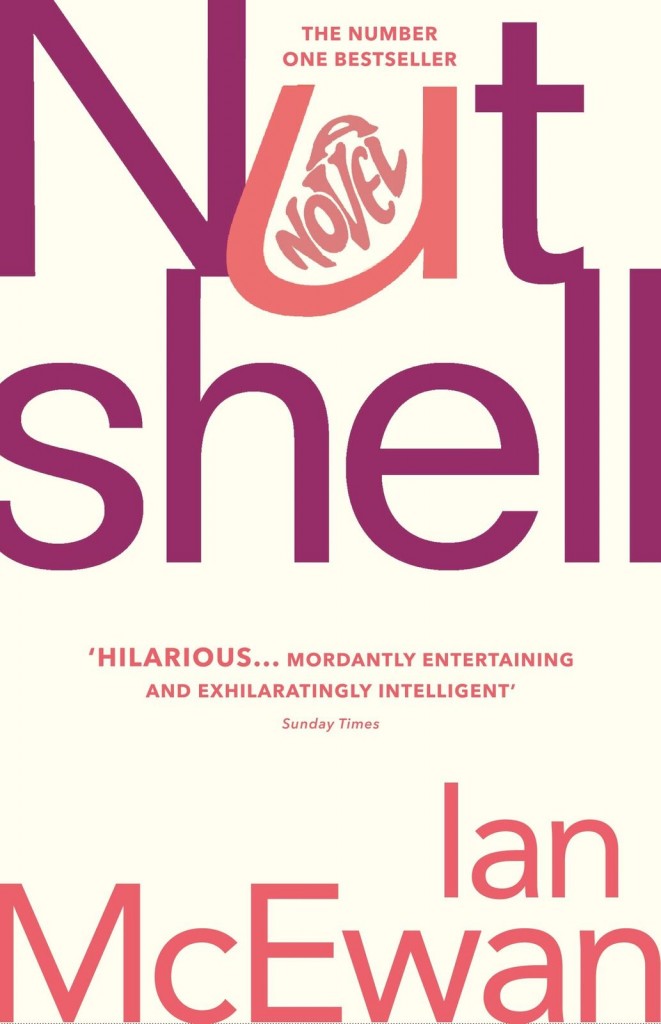
‘Nutshell’ novel review
By Ethan Gibson, Contributor
Authors have given us countless interesting, loveable, despicable, or otherwise beguiling narrators. Often, an intriguing narrator is what draws us towards a novel in the first place. I found that to be the case with Ian McEwan’s 2016 novel Nutshell.
It’s essentially a modern-day retelling of Shakespeare’s classic tragedy Hamlet, but with an intriguing twist: The novel is narrated by a fetus. He learns, through eavesdropping (he can do little else), that his mother and his uncle are plotting to kill his father. Those familiar with the original play will already see the parallels, but others will, I think, enjoy it all the same. It has all the power of Shakespeare combined with the incredible storytelling skills of McEwan, who is best known for the novel Atonement, which was later adapted to film.
McEwan’s narrator is no ignorant child; he already has a fully-formed, intelligent personality. The protagonist’s vocabulary is endlessly impressive, and he’s equipped with a dry wit which lends the novel a superbly dark sense of humour. The novel opens with the following exposition: “So here I am, upside down in a woman.” Frustrated by his lack of agency, yet relentlessly opinionated, the narrator is one of the most memorable I have ever encountered.
Nutshell is also packed with suspense—it’s a psychological thriller unlike any other. Despite being inspired by one of Shakespeare’s most famous tragedies, Nutshell still manages to surprise and delight.
For those who look to novels for social commentary, Nutshell won’t disappoint. The unborn narrator has learned about the world around him (our world) from news broadcasts and podcasts—the same ways that many of us receive information. He has a lot to say about the issues we currently face, and, as eager as he is to join the world, he is also filled with trepidation. News of the refugee crisis, climate change, and other global crises fill him first with dread, and then with defiant optimism. He remarks that “pessimism is too easy, delicious even, the badge and plume of intellectuals everywhere … We’ll always be troubled by how things are—that’s how it stands with the difficult gift of consciousness.”
We might be able to learn something from this innocent narrator, who describes himself as a “blank slate.” Nutshell is entertaining, but it also imparts a valuable message about tragedies in fiction and reality. When the news acts as a constant stream of grim pessimism, when we feel that the world is broken, we’re tempted to look away, to give up. Novels like Nutshell remind us not to lose hope, and to act when we can, if we can. McEwan’s narrator might be powerless, but we are not. As an update and adaptation of Hamlet, Nutshell reaffirms the power of stories to influence each other, to be told and retold, and to help us understand our tempestuous world.


